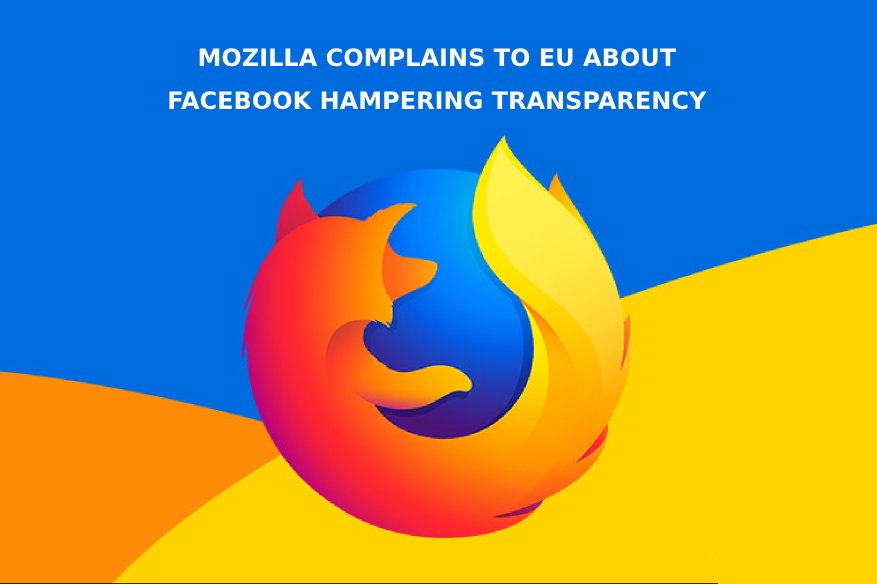Mozilla Complains to EU About Facebook Hampering Transparency

Facebook is not new to controversy, and over the years we have how things have been particularly bad for the social media giant. The latest to join the list of the complainant is Mozilla, as they complain to the European Commission about the way Facebook is trying to restrict on outsiders analyzing political advertising.
Danielle Dixon, Mozilla’s chief operations officer, in a letter Thursday to Mariya Gabriel, said “Transparency cannot just be on the terms with which the world’s largest, most powerful tech companies are most comfortable. Facebook should open a programming interface immediately that will let any researcher or organization build tools to help people “understand and therefore resist targeted disinformation campaigns.”
ProPublica and WhoTargetsMe join Mozilla’s concern, as they had earlier raised similar objections when Facebook restricted their abilities. This move comes at a time when Facebook was caught for exposing data on up to 87 million users to Cambridge Analytica.
And Facebook’s attempt to restore faith after social media manipulation during the 2016 US election isn’t over, either: Facebook said Thursday it removed 783 pages that it said Iran used to try to influence elections in other countries.
Facebook said the Mozilla difficulties arose because it’s trying to block ways outsiders can get unauthorized access to people’s information, including tools that block ads or scrape ads.
But Facebook’s move means the social network isn’t fulfilling the requirements of the European Code of Practice on Disinformation, an industry effort at self-regulation that went into effect in September, Mozilla’s Dixon said.
The simple keyword search available with Facebook’s Ad Archive tool “has design limits that prevent more sophisticated research and trend analysis on the political ads,” Mozilla said and doesn’t comply with the code.
The result is that Facebook is hobbling Mozilla’s tool called Ad Analysis for Facebook for Firefox users who want to find out who’s trying to pull their strings during the European Union’s parliamentary elections.